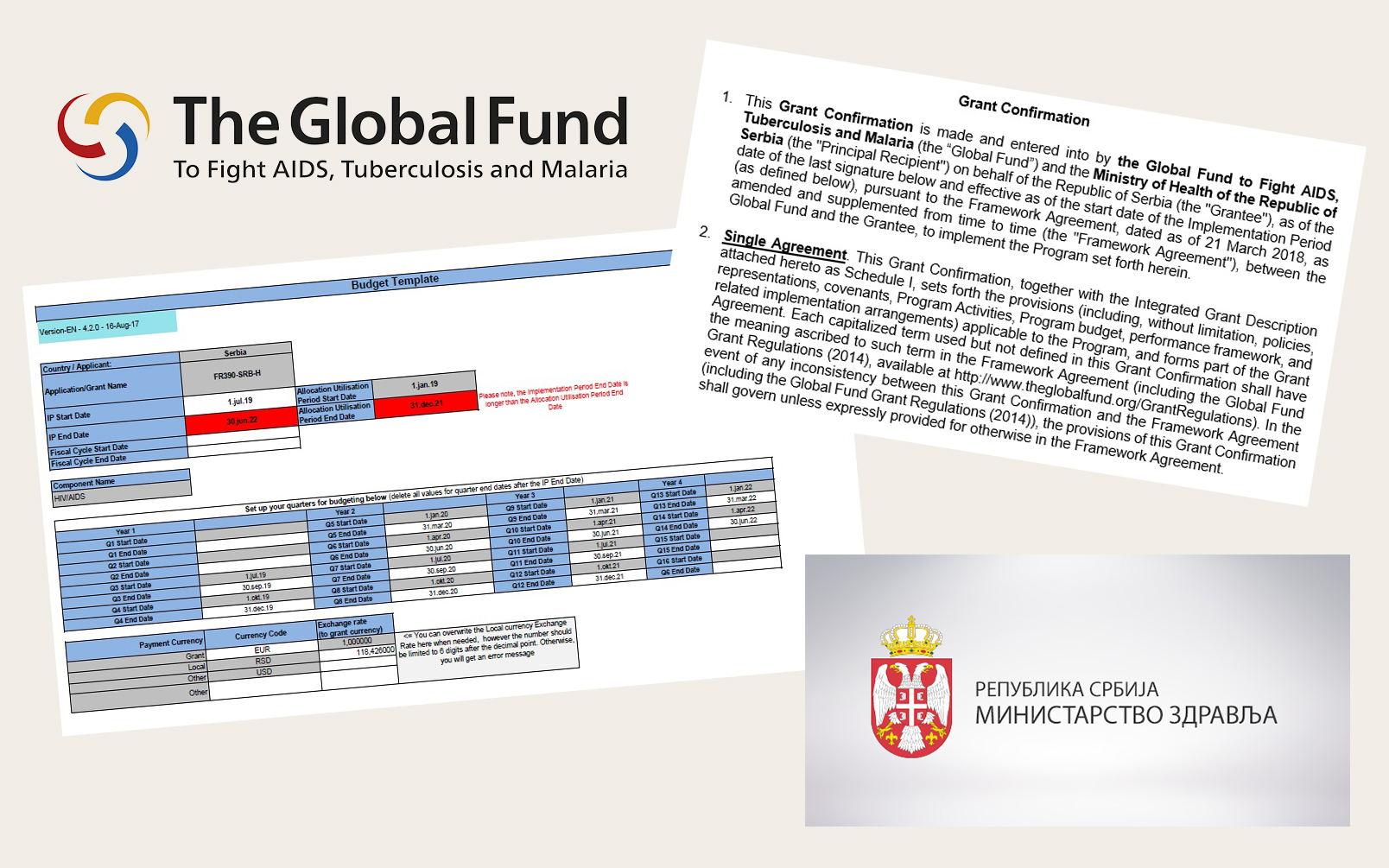The National Committee for fighting HIV/AIDS and Tuberculosis, which performs the role of the Country Coordinating Mechanism in Serbia, adopted today the documents which will be submitted to the Global Fund to fight AIDS, Tuberculosis and Malaria. The project is expected to run from July 2019 to June 2022.
Back in 2016, the Global Fund allocated €1,098,351 for HIV and building resilient and sustainable systems for health. The allocation have been determined primarily based on disease burden and income level. Serbia is classified as an upper-middle-income country. Serbia committed to encourage additional domestic investment of 25%. The first amount agreed during the application in already included in the national budget for 2019.
The project seeks to scale-up HIV testing services for all key affected populations (KPs), preventive programs for men who have sex with men and sex workers and needles and syringes program (NSP) and other preventive programs for people who inject drugs. In addition, the project seeks to maintain and extend support provided by organizations of people living with HIV to people on antiretroviral treatment. The project will fund services provided by civil society organisations and will contribute to community system strengthening. In order to reach the maximum impact the majority of prevention and support interventions will be implemented at least in the two regions (Belgrade and Vojvodina) in which majority of KPs are concentrated based on surveillance data..
The civil society organisations, including DPNSEE and our three member organisations from Serbia Prevent, Duga and Timok Youth Centre, actively participated in creating the new national HIV strategy, in the work of the National Committee and the Working group for negotiations with the Global Fund.





